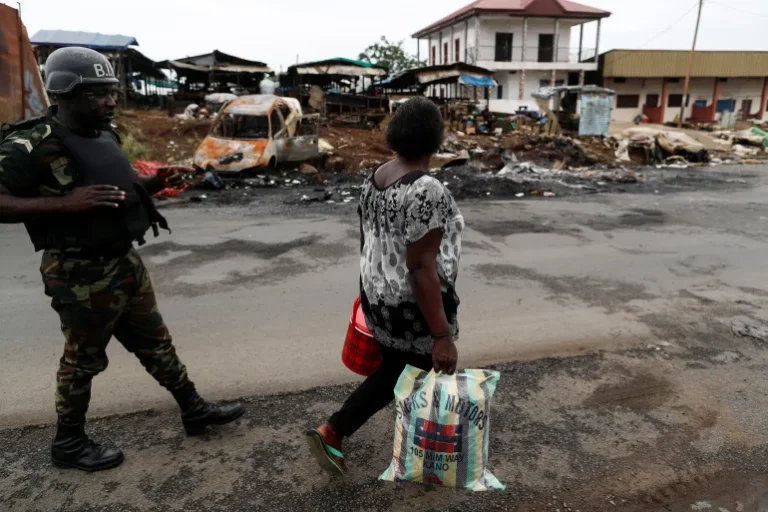Akwaya – The Chiefs of Messaga Ekol Court Area in Akwaya Subdivision have announced a meeting set for December 30, 2024, aimed at fostering dialogue and restoring “normalcy” in a region deeply scarred by years of conflict. The ambitious plan comes as tensions remain high, with Cameroonian military forces currently occupying parts of Ballin village, adding urgency to the need for peace.
Peace and stability first eluded Akwaya in 2016, with the eruption of the Ambazonia war—a conflict rooted in the annexation and marginalization of the former British Southern Cameroons by La République du Cameroun, the French-speaking majority. What began as peaceful protests by teachers and lawyers quickly escalated into a full-blown war after the Cameroonian government responded with arrests, repression, and violence against Southern Cameroonians.
In Akwaya Subdivision, the communities of Assaka, Bombe, Bagundu, Ballin, Bakinjaw, and Enjawbaw initially united against La République du Cameroun. However, as the conflict intensified, internal divisions began to fracture their solidarity. While Assaka and Enjawbaw villages have remained resolute in resisting Cameroonian control, other villages like Bakinjaw, Ballin, and Bagundu shifted focus, eventually clashing with Enjawbaw youths in violent confrontations. These intercommunal tensions have exacerbated the war’s devastating impact, leaving the area mired in fear and distrust.
The Chiefs’ December meeting seeks to address this spiraling cycle of violence. By gathering representatives from all affected communities, the dialogue aims to reduce hostilities and pave the way for reconciliation. However, skepticism surrounds the initiative, as many view it as an attempt to project a facade of peace while the underlying causes of the conflict—Cameroon’s annexationist policies and military occupation—remain unaddressed.
The timing of the planned dialogue has raised concerns, given the ongoing military operations in Ballin village. Cameroonian forces have reportedly intensified their presence in the area, sparking fears of further violence and reprisals. This heightened military activity underscores the fragile and volatile nature of the region, where efforts for peace are often overshadowed by the realities of war.
While the Chiefs’ call for dialogue is seen by some as a step toward reconciliation, others question whether the meeting will genuinely address the root causes of the conflict or merely serve as a symbolic gesture. The memories of betrayal and bloodshed remain fresh, and many Akwaya residents are wary of any process that does not guarantee justice or accountability for past atrocities.
As December 30 approaches, the population will watch closely to see whether this initiative can break the cycle of violence or if it will falter under the weight of entrenched animosities and ongoing military aggression.

